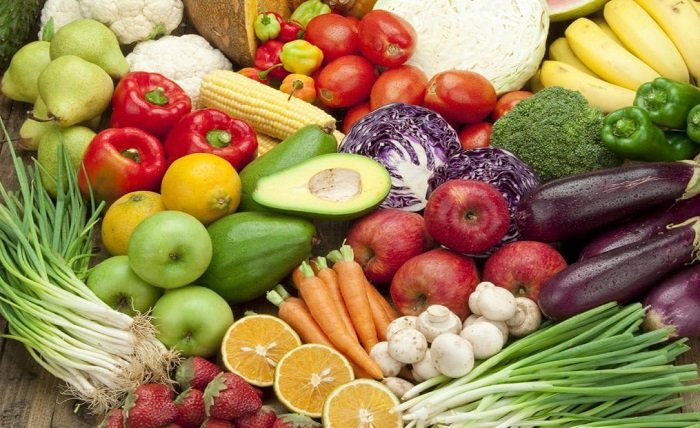10 Must-Have Organic Foods for a Healthy Diet

In a world where health has become a priority, organic foods have gained immense popularity for their potential to enhance well-being. The concept of a healthy organic diet has transcended being just a trend to become a fundamental approach to nutrition. With an array of options available, it’s essential to navigate through the choices and identify the best organic food options that should be included in your daily intake. In this article, we’ll explore the top organic foods that are essential for a healthy diet, while also delving into their benefits, role in weight loss, and the crucial difference between organic and inorganic foods.
Benefits of Organic Food
Before diving into the specifics, let’s briefly touch upon the benefits of organic foods. Organic farming eschews synthetic pesticides and fertilizers, relying instead on natural methods that promote soil and water conservation. As a result, organic foods are often packed with more nutrients and antioxidants, making them a valuable addition to any diet. Consuming organic foods reduces the risk of exposure to harmful chemicals, supports local and sustainable agriculture, and contributes to a healthier environment.
Read more about: toon-stream
Difference Between Organic and Inorganic Food
Understanding the difference between organic and inorganic foods is vital for making informed choices. Organic foods are grown without synthetic pesticides, genetically modified organisms (GMOs), or artificial fertilizers. In contrast, inorganic foods, also known as conventionally grown foods, may contain traces of pesticides and other chemicals used during cultivation. Opting for organic foods minimizes exposure to these potentially harmful substances and ensures that you’re consuming produce cultivated through environmentally-friendly practices.
Top Organic Foods for a Healthy Diet
1.Spinach – The Best Organic Food Option:
Spinach ranks high among the best organic food options due to its incredible nutrient density. Packed with vitamins A, C, K, and folate, along with minerals like iron and magnesium, spinach supports overall health. Incorporating it into salads, smoothies, or sautés can significantly enhance your nutrient intake.
2.Blueberries – A Cornerstone of a Healthy Organic Diet:
Blueberries are renowned for their high antioxidant content, particularly anthocyanins. These compounds help fight inflammation and oxidative stress, reducing the risk of chronic diseases. Adding organic blueberries to your breakfast or snacking routine can provide a delicious dose of nutrients.
3.Quinoa – Nutrient-Packed and Ideal for Weight Loss:
Quinoa is a versatile whole grain that’s rich in protein, fiber, and essential amino acids. It’s a go-to option for those seeking food for weight loss due to its ability to promote fullness and sustained energy.
4.Kale – A Nutritional Powerhouse:
Kale is often hailed as a superfood for good reason. It’s brimming with vitamins C, K, and A, and is a great source of fiber. Incorporating organic kale into your diet through salads, soups, or even kale chips is an excellent way to boost your nutrient intake.
5.Avocado – Healthy Fats for a Healthy Organic Diet:
Avocado is rich in monounsaturated fats, which are heart-healthy fats that also aid in weight management. It’s a great source of potassium and essential nutrients that support various bodily functions.
6.Sweet Potatoes – Nutrient-Rich and Satiating:
Sweet potatoes are a nutritional powerhouse, loaded with beta-carotene, vitamins, and fiber. They provide a slow release of carbohydrates, making them an ideal addition to a healthy organic diet.
7.Broccoli – Cruciferous Goodness:
Broccoli belongs to the cruciferous vegetable family and is known for its cancer-fighting properties. It’s an excellent source of vitamins, minerals, and fiber, making it a top choice among organic foods.
8.Salmon – Organic Protein Source:
When considering organic meats, wild-caught salmon stands out. Rich in omega-3 fatty acids, it supports heart health and brain function. Its lean protein content makes it suitable for weight loss diets.
9.Beans and Legumes – Plant-Based Protein and Fiber:
Organic beans and legumes, such as black beans, lentils, and chickpeas, are rich in protein and fiber. They provide a feeling of fullness and are excellent for regulating blood sugar levels.
10.Nuts and Seeds – Healthy Fats and Nutrients:
Incorporating organic nuts and seeds like almonds, chia seeds, and flaxseeds can provide a dose of healthy fats, protein, and essential nutrients. They make for convenient and nutritious snacks.
Organic Foods as Part of Weight Loss Strategies
Many of these organic foods play a significant role in weight loss strategies. Their nutrient density and high fiber content promote satiety, helping you consume fewer calories. Incorporating them into your meals can support your weight loss journey while ensuring you’re receiving essential nutrients.
The path to a healthy organic diet is paved with nutrient-rich foods that cater to both taste and well-being. From the best organic food options like spinach and blueberries to nutrient-packed powerhouses like quinoa and kale, each food brings its unique set of benefits to the table. Embracing organic foods is not only an investment in your health but also a conscious choice that promotes sustainable agriculture and a cleaner environment. As you embark on your journey towards a healthier lifestyle, remember that every meal is an opportunity to nourish your body and make a positive impact on the world around you.



